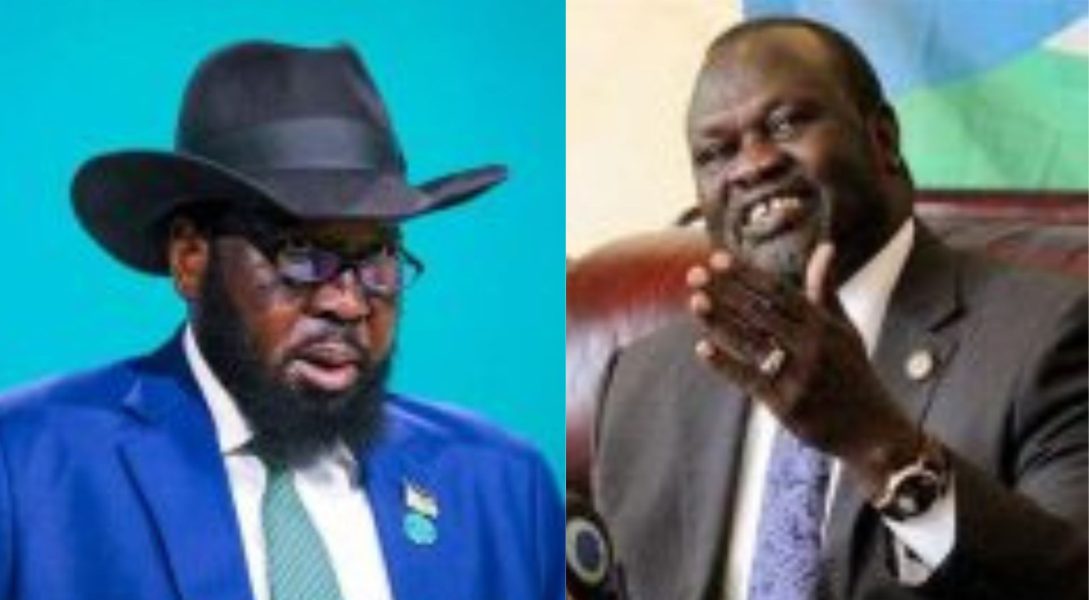
South Sudan is once again at the edge of political turmoil after President Salva Kiir Mayardit suspended his First Vice President and long-time rival, Dr. Riek Machar, alongside Petroleum Minister Puot Kang Chuol, accusing them of treason, murder, and crimes against humanity.
The announcement came in a late-evening decree read on state-owned SSBC, citing constitutional provisions that allow the president to remove officials pending trial.
Hours earlier, Justice Minister Joseph Geng Akech formally indicted Machar and seven allies for their alleged role in a bloody March assault on a military garrison in Nassir, Upper Nile State, which left more than 250 government soldiers dead.
“The evidence reveals the White Army acted under coordinated military and political structures linked to SPLM/A-IO leaders, including Dr. Riek Machar,” Akech said.
“These crimes were marked by gross violations of the Geneva Conventions and international humanitarian law, including desecration of corpses, persecution of civilians, and attacks on humanitarian workers.”
But the charges have triggered heated debate both inside and outside the country: is this the pursuit of justice—or a calculated witch hunt to destroy Kiir’s fiercest rival?
Dr. Riek Machar, leader of the opposition SPLM-IO, has for years shared a fragile power arrangement with President Kiir under the 2018 peace accord.
Their uneasy partnership has held the country together, but barely. Many in Juba now see Machar’s suspension not only as a legal case, but as a decisive political strike in a long-standing battle for supremacy.
“This is not about crimes; it’s about politics,” said one SPLM-IO member who asked not to be named. “Kiir wants Machar gone, and Nassir gave him the excuse.”
The suspension of Petroleum Minister Puot Kang Chuol—one of Machar’s closest allies and the man controlling South Sudan’s most lucrative ministry, further stoked fears that the SPLM-IO is being systematically stripped of power.
The charges stem from violent clashes in Nassir, Upper Nile, in March. What began as a joint deployment of government and SPLM-IO forces descended into chaos, displacing tens of thousands and deepening the humanitarian crisis in the region.
The government blames the White Army militia, an ethnic Nuer armed group, claiming Machar commanded the assault.
SPLM-IO denies the accusation, describing the violence as “government provocation turned tragedy.”
The indictments have reignited fears over the future of the 2018 peace deal. Observers warn that sidelining Machar could push SPLM-IO hardliners back into conflict, fracturing the shaky unity government.
Witch Hunt or Justice?
The case now sits at the heart of South Sudan’s politics: justice for alleged war crimes, or a witch hunt disguised as law?
For Kiir’s camp, it is a matter of accountability and law enforcement. For Machar’s supporters, it is a dangerous power play, an authoritarian move that could plunge the country back into civil war.
What is clear is that South Sudan faces its most volatile moment in years. Whether the courts deliver justice or politics devours it, the stakes could not be higher.

